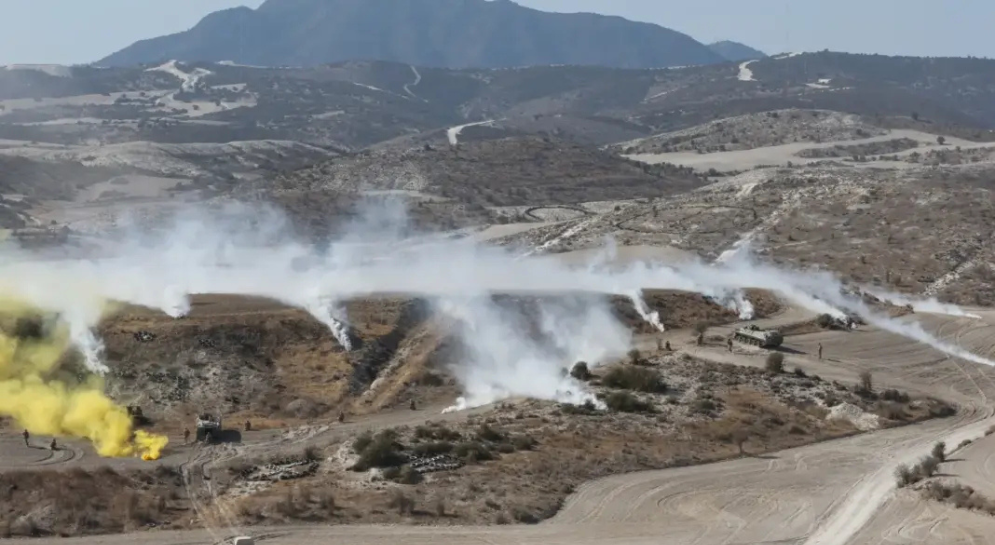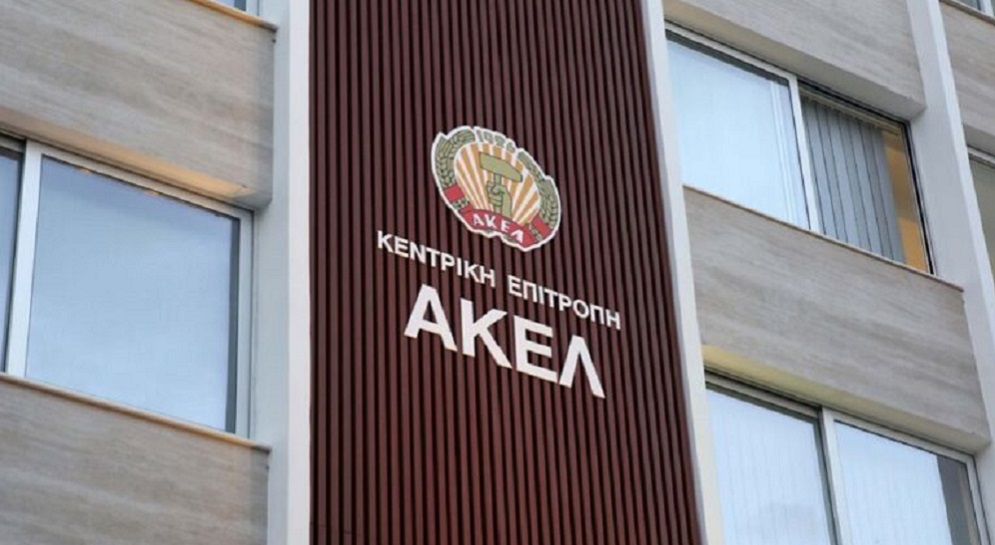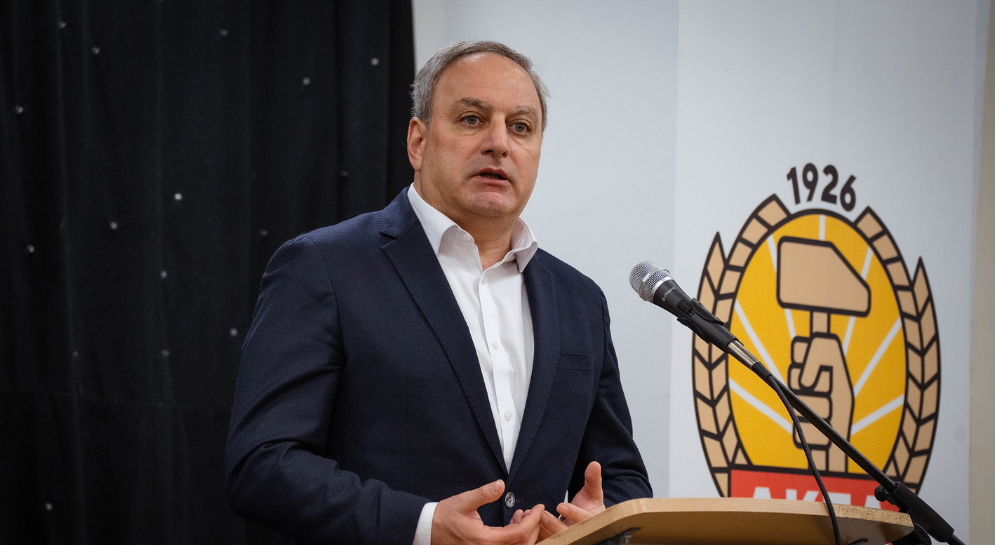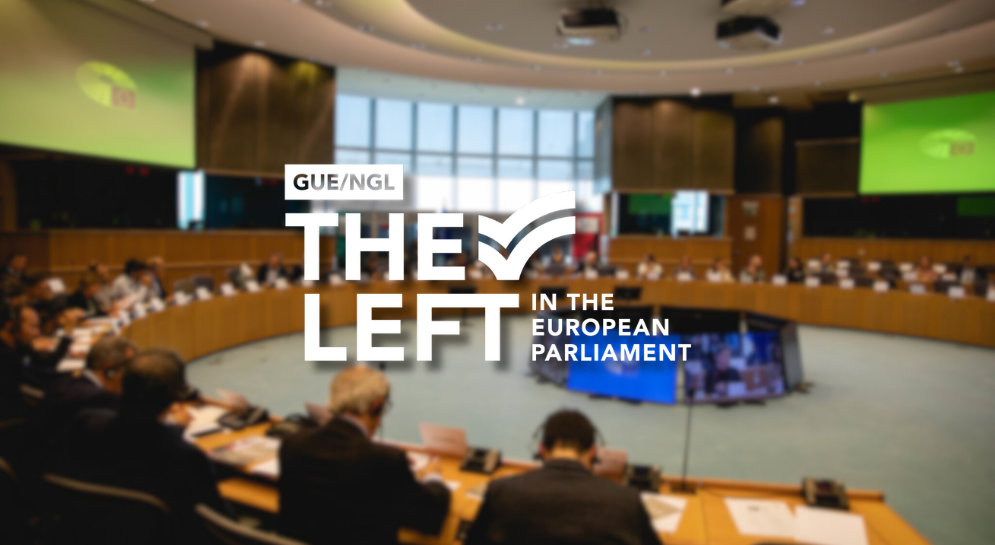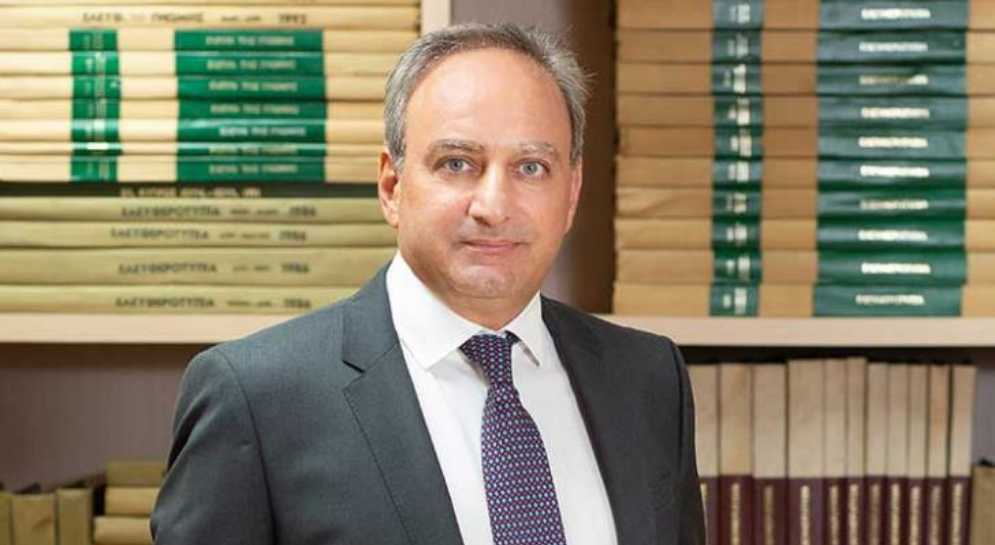
Interview with the General Secretary of AKEL S.Stefanou
- Peacemaker and occupying power are two irreconcilable roles
- Energy is an incentive for a solution to the Cyprus problem
25 April 2022, ‘TA NEA’ newspaper in Greece
The need for natural gas to become an incentive for a solution to the Cyprus problem, “now that energy security is at the centre of attention”, was stressed by the General Secretary of the C.C. of AKEL Stefanos Stefanou in an interview to the Greek newspaper “NEA”. At the same time S.Stefanou issues a warning that Ankara’s attempt to present itself as a “peacemaker” in the Ukrainian conflict is not compatible with its role as an occupying power, while simultaneously pointing out Turkey’s obligation “to respect international law”.
QUESTION: Do you see Turkey’s role being strengthened as a result of the Ukraine conflict and what does this mean for the Cyprus problem? Could the situation as it is evolving be a reason for positive developments to emerge?
SS: Turkey’s foreign policy revolves around one central axis, that is to say, its emergence as a hegemonic regional power. This objective is pursued through the creation of tensions, proceeding to engage in illegal actions and military interventions. In view of Turkey’s trade relations with several states as well as the EU, its function as an energy corridor, the development of its military/arms industry and military power within NATO, the international community tolerates and ends up feeding Turkish expansionism.
Taking advantage of these correlations of forces, Ankara from time to time portrays itself as a “peace mediator”. This is precisely what is happening right now. But a “peacemaker” and occupying power are incompatible roles. The defence of the sovereignty and territorial integrity of states cannot be modified to serve geopolitical interests – and I am referring to those forces and circles who played a leading role in its violation in Cyprus, Yugoslavia and Iraq.
Can we hope for anything on the Cyprus problem today? Maybe. But not because the policy of double standards will all of a sudden be abandoned, but if, now that energy security is at the centre of attention, we bring natural gas back to the fore as an incentive for a solution of the Cyprus problem.
QUESTION: Turkey is asserting a role in the energy plans of the Eastern Mediterranean. Can pressure be put on Nicosia to make concessions?
SS: At stake is not whether Turkey has assertions, but its obligation to respect international law, in particular the UN Law of the Sea. In the absence of Turkey’s respect and cooperation with the Republic of Cyprus – and Greece – serious difficulties will continue to arise in the planning and implementation of a comprehensive and coherent energy cooperation in the Eastern Mediterranean.
It is precisely for this reason that the interconnection of the energy issue with the solution of the Cyprus problem creates preconditions for positive and mutually beneficial developments. This was also the substance of the proposal submitted by AKEL 16 months ago on the Cyprus problem.
So, if the present situation is not exploited, an important incentive for a solution may be lost and the risk of the Republic of Cyprus being bypassed, with geopolitical consequences, will be real. Something that is already being indicated by the development of rapprochement in relations between Ankara and Tel Aviv.
QUESTION: Did Cyprus made the correct decisions with regard to sanctions, while Turkey remains slickly neutral?
SS: The decisions (on the issue of sanctions) were taken at an EU level without any substantial differentiation on the part of the Cypriot government. And how could it take a different position given the history of the “golden passports” scheme and President Anastasiades’ relationship with Russian tycoons?
There was an invasion in Ukraine and the invocation of international law cannot be selective. Cyprus and its people have experienced war. We are living under conditions of occupation and the measure of right and wrong could not be Ankara’s stand.
However the procedures that have been followed, the proportionality and justification of certain sanctions, are the subject of criticism. Particularly if we consider the seriousness of their consequences, the sharp rise in price increases, the impact on the food and supply chain, on tourism. Cyprus-Russia relations are expected to enter a difficult period and we hope that there will not be any changes in the Russian Federation’s positions of principle on the Cyprus problem. And one additional thing: sanctions do not ensure peace – dialogue gives it a perspective.
QUESTION: AKEL did not attend Zelensky’s speech in Parliament. Were you annoyed by the absence of any reference by Zelensky to the Cyprus problem?
SS: We did not expect an explicit condemnation of the Turkish occupation, given the military relations that have been forged between Turkey and Ukraine and Zelensky’s proposal to make Turkey a “security guarantor”. However, we did expect at least some vague expression of solidarity with the Cypriot people. This did not happen either, despite the fact that in all the other parliaments Zelensky did not fail to draw historical parallels.
Unfortunately, together with this provocative omission, we also point out the unacceptable presence of a so-called “fighter” of the neo-fascist Azov Battalion in the Greek Parliament. A fact that is an offence to every democrat which led AKEL to the decision not to attend Zelensky’s speech to Parliament.
AKEL’s position for the condemnation of the Russian invasion, the respect of the sovereignty and territorial integrity of Ukraine, the demand for an immediate ceasefire and the withdrawal of Russian troops is unwavering. AKEL will continue to express its solidarity with the suffering Ukrainian people.
However, the ethics of responsibility towards the millions of victims of fascism-Nazism, the belief in democracy, anything put permits the covering up of the criminal actions being committed by the neo-fascist groups that bear a large share of responsibility for the drama underway in Ukraine, as well as those who are stirring up the escalation of tension – and I am referring specifically to NATO.


